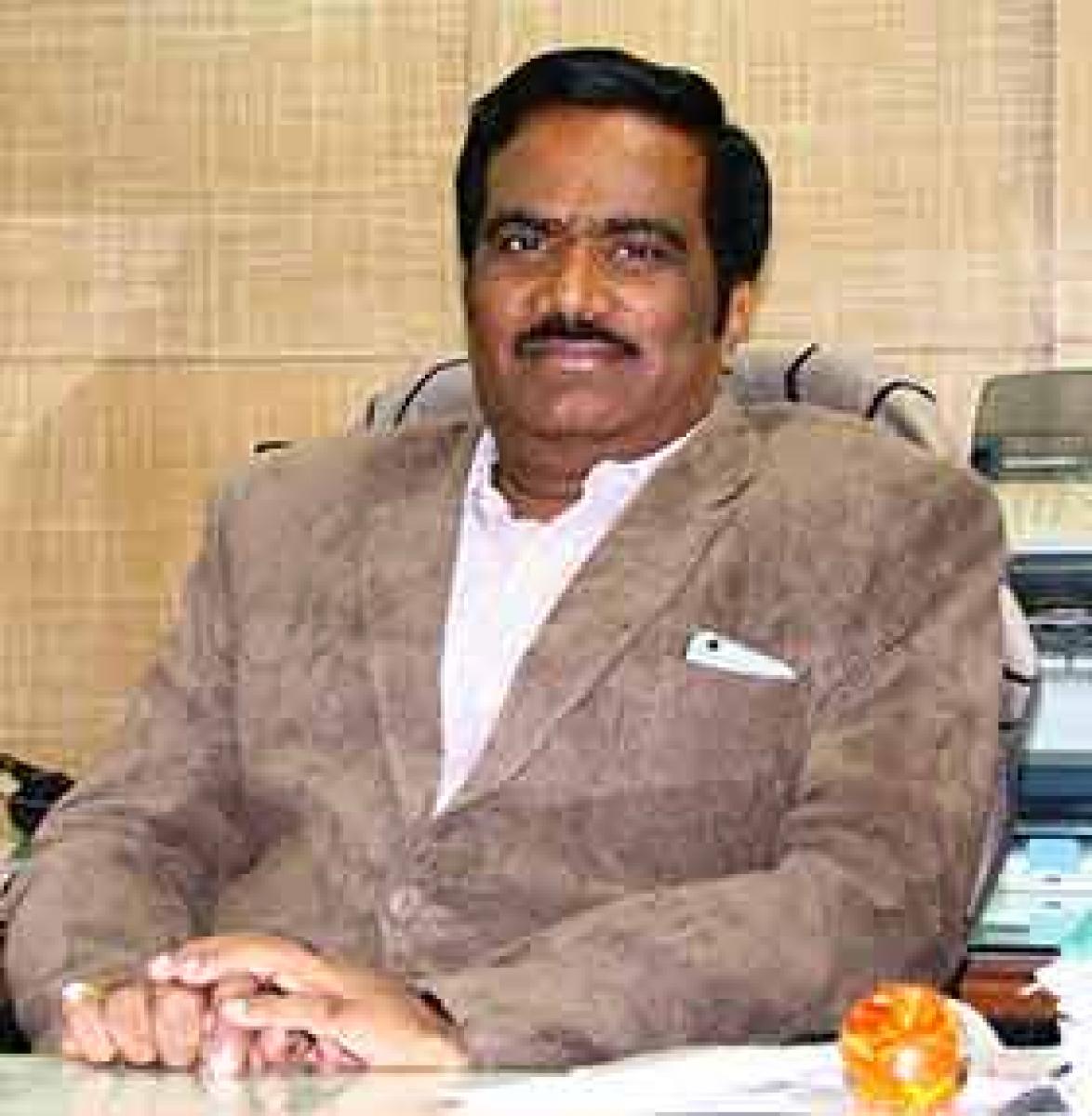Live
- Hyderabad fastest growing city among 6 metros
- MyVoice: Views of our readers 20th November 2024
- Tamil Nadu, Manipur enter final rounds
- Anupama enters 2nd round; Sumeet-Sikki also win
- Stage set for Mahayuti-MVA 'Maha' yudh today
- India beat Japan 2-0, to face China in final
- Space X launches ISRO's communication satellite
- Sensex, Nifty rebound on value buying
- Eatala dares Revanth for debate on Cong 6Gs
- Modi strengthens global ties at Rio de Janeiro
Just In

He has just assumed office as the Vice-Chancellor of University of Hyderabad. Although he takes over at a particularly critical time for the varsity, Prof Appa Rao Podile presents a picture of confidence while dwelling in detail about the challenges
.jpg) Prof Appa Rao Podile, Vice-Chancellor, University of Hyderabad
Prof Appa Rao Podile, Vice-Chancellor, University of Hyderabad
He has just assumed office as the Vice-Chancellor of University of Hyderabad. Although he takes over at a particularly critical time for the varsity, Prof Appa Rao Podile presents a picture of confidence while dwelling in detail about the challenges that he is up against and how he intends to streamline the structure during the course of an interaction with The Hans India correspondent Yuvraj Akula.
Excerpts:
As the new Vice-Chancellor what do you reckon are the immediate challenges that lie ahead for you?
The challenge for me is to boost the reputation of the University several times over. Our avowed objective is to take steps in such a way that it would break into the Global Top 200 varsities category. Retaining the existing status may not be a problem as the university has a proven and highly respectable faculty, career-minded students and a good administration to translate the vision into reality.
What is the status of research that is underway in the University? What is your take on the relevance of research on issues pertaining to societal needs?
University of Hyderabad has an ever buzzing research activity in the campus. The best part of the whole exercise that also symbolises our qualitative uniqueness is that we get assistance.
For instance, right now, the Government-run Department of Biotechnology is supporting two projects while the European Union is actively supporting a Botany project. Very relevant to agriculture, the research is intended to innovate technologies that could help reduce the use of toxic chemicals in agriculture.
Besides these, large scale research is underway in chemistry and social sciences. Researchers in the chemistry department are engaged in synthesizing chemical molecules which can be future drugs. Similarly in social sciences, they are actively engaged in interaction with the government in policy making, review, evaluate and suggestions to the policy makers.
The communication department has done a lot for development of community radio in Bangladesh, Malaysia and Kenya. A high point for our efficiency came when community radio came in handy and reduced the casualty rate in the terrible earthquake that crippled Nepal.
It is generally presumed that research and patents are not going hand-and-in-hand in the university. Why is this happening and have you chalked out any remedial measures that can bring about a much needed coherence?
The problem is that the teachers who are engaged in research work are not overly keen on obtaining a patent. By virtue of doing research they are scientists but they are not the typical scientists, who will readily market any innovation they develop.
But the University teachers take pride in their ‘discoveries’, which they hope to present as papers on international platforms. The University will motivate the research-oriented faculty members by conducting workshops and lecturers by eminent researchers, who will underscore the importance of filing for patent. We will also find a mechanism to financially support the researchers for filing patent.
Do you propose to incorporate new courses in the next academic year?
The University will introduce vocational courses through community college approach. English speaking course and course in 3D imaging in association with Engineering Staff College of India are also under active consideration as of now.
We have constituted a committee to come up with recommendations. Online courses are also in the pipeline. Decisions will be taken only after the issue is discussed threadbare.
A Masters in Education is finalized for the coming academic year. We are through with faculty positions and infrastructure for introduction of the course.
There is a large presence of illegal boarders in the hostels, who are generally blamed for the unrest that prevails in the campus. Do you plan to evict these trouble-making outside elements-maybe by putting in place CCTV cameras and Biometric system in the hostels.
We don’t have any immediate plans to go for them. The students who created unrest are doing so because they are irresponsible. All the unauthorised people will be weeded out in a systemic manner using internal mechanisms.
Students are apprehensive about the presence of police in the campus. Do you really think that the situation is so precarious that police has to man the campus day in and day out?
The University will not deliberately bring police into the campus. If somebody wants to break the law and doesn’t respect internal system such people will be forcing us to resort to such a precautionary measure.

© 2024 Hyderabad Media House Limited/The Hans India. All rights reserved. Powered by hocalwire.com







